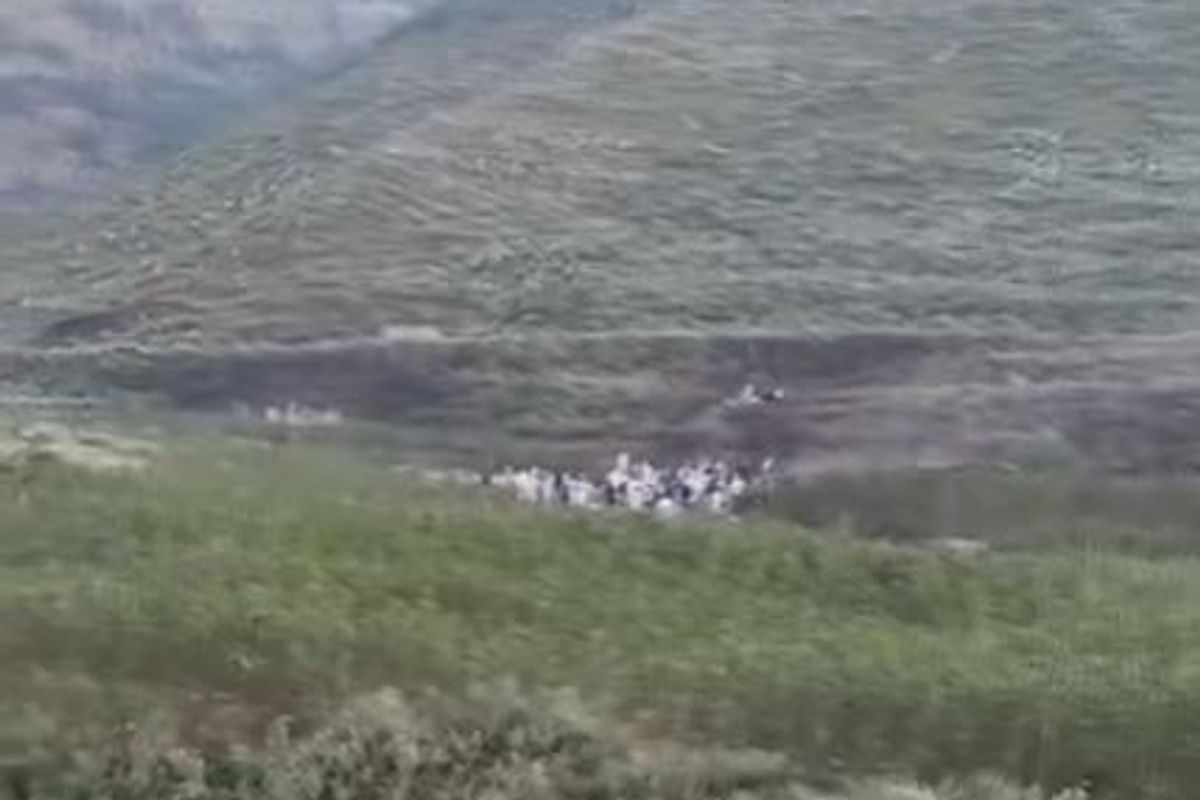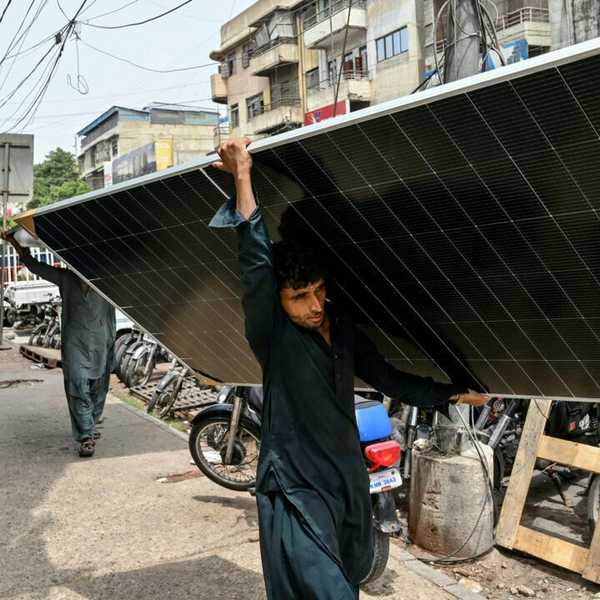Deadly blast in Pakistan’s Tirah valley kills 21
Locals allege Pakistani jets bombed Tirah homes, but FC North blames a militant IED blast instead

Kamran Ali
Correspondent Nukta
Kamran Ali, a seasoned journalist from Khyber Pakhtunkhwa, Pakistan, has a decade of experience covering terrorism, human rights, politics, economy, climate change, culture, and sports. With an MS in Media Studies, he has worked across print, radio, TV, and digital media, producing investigative reports and co-hosting shows that highlight critical issues.

Villagers gather at the site of blast in Pakistan's Tirah Valley on September 22, 2025.
Screengrab
At least 21 people, including women and children, were killed in an overnight explosion in Pakistan’s Tirah valley, a mountainous region of Khyber district near the Afghan border, local officials and residents said Monday.
Witnesses and tribal leaders alleged that Pakistani military jets carried out strikes in the Aka Khel area around 3 a.m., destroying five houses and killing members of three families. Tehsil Chairman Bara, Mufti Muhammad Kafeel, said 17 of the victims were from a single family, while two others were from each of the other families.
“Twenty-three people lived in the targeted area, but two were away at the time, leaving 21 dead,” an eyewitness said, claiming the bombardment lasted nearly an hour.
Authorities, however, disputed those accounts.
The Frontier Corps (FC) North issued a statement, rejecting claims of Pakistani airstrikes. It said the “propaganda” was part of a smear campaign designed to malign the country’s armed forces.
According to the FC, the incident was caused by an explosion inside an improvised explosive device (IED) manufacturing facility run by militants in Aka Khel. The facility, they said, had been set up by militant commanders Amaan Gul and Masood Tashkeel in the heart of a civilian area.
“Credible sources and local eyewitnesses have confirmed that the terrorists had set up an IED-manufacturing factory,” the FC statement said. “There was an initial large explosion inside this factory, which engulfed surrounding houses, killing 12 to 14 terrorists and causing collateral damage to 8 to 10 civilians from families being used as human shields.”
The paramilitary force accused militants of deliberately using civilians, homes, and mosques as cover. “The so-called ‘civilian bombing’ narrative is a desperate smear campaign designed to protect terrorists and undermine Pakistan’s sacrifices in the war against terrorism,” the statement said, adding that operations were solely aimed at eliminating “the menace of khawarij [TTP] terrorists.”
Protests erupt in Bara Bazaar
The incident nevertheless sparked outrage in the valley. Residents staged protests in the affected villages, while hundreds gathered at Bara Bazaar.
Tribal elder Niaz Baraan said the bodies had not yet been buried as community leaders debated whether to take them to Bara or the provincial capital, Peshawar, to press their demands.
“The soil has been stained with the blood of innocents,” said Abdul Ghani Afridi, a provincial lawmaker from former Prime Minister Imran Khan’s Pakistan Tehreek-e-Insaf (PTI) party.
He announced a boycott of all government activities until those responsible were held accountable.
Another PTI politician, National Assembly member Iqbal Afridi, accused the state of “bombing civilians for dollars” instead of focusing on eliminating militants. He warned that protesters were considering escalating their demonstration by marching to Peshawar or resigning from the assemblies.
Sohail Afridi, a special assistant to the Khyber Pakhtunkhwa chief minister, also alleged that security forces had conducted the strikes, accusing the state of routinely targeting civilians in the region.
Neither the federal nor provincial government has issued a statement on the incident.
The tragedy follows a deadly confrontation in Tirah on July 27, when gunfire on protesters left five people dead and 16 injured. That violence also triggered a standoff, with residents initially refusing to bury the bodies until security forces offered partial concessions through tribal mediation.
The Tirah valley, part of Pakistan’s former tribal areas, has long been a flashpoint for militancy, counterinsurgency operations and strained relations between security forces and local communities.







Comments
See what people are discussing